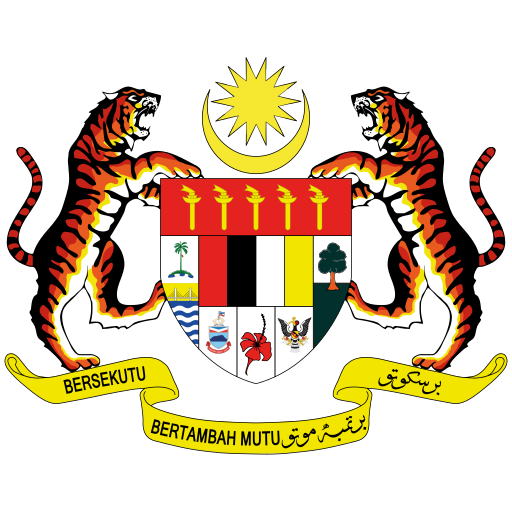PLENARY SESSION “THE INTELLIGENCE GRID: BUILDING BRIDGES THROUGH SOVEREIGN AI COLLABORATION”
PLENARY SESSION
“THE INTELLIGENCE GRID: BUILDING BRIDGES THROUGH SOVEREIGN AI COLLABORATION”
AT
FORTUNE ASEAN – GCC ECONOMIC FORUM (AGCEF)
28 MAY 2025 | 9.00 AM
MANDARIN ORIENTAL
Question 1
How regional partnership in AI can secure digital sovereignty for developing nations without being concern by global tech rivalries?
Answers:
Thank you, Prime Minister Pham Minh Chinh, that is the expert actually but then you see there is a paradigm shift now because AI so penetrative so compelling that it covers the whole spectrum of governance and daily life that we leaders have no choice but to try and grasp this new technology.
Now, second issues occur which is relates to the issue of governance is sovereignty. Governments are there to protect sovereignty, but then the word sovereignty actually predates new technology. It it has to be reviewed, repurpose to protect the security, yes, over the nation, but at the same time, to allow for this new space. They caught companies and operations in the cloud within the sovereign area, but still totally independent of national laws excepting for protecting borders and security.
So, that’s why I believe that we Malaysia, for example, have accepted this. We’ll have to introduce new legislation to accept the fact that sovereignty must be viewed so as to be seen to be able to transform that technology and allow AI to operate independently without having to subject itself to the laws of the country. Which means like what we have given to the embassies in the old system. So, I think we are safe at that.
On the third issue on the regional global perspective because the very fact that we deal with a new technology is not national, is not sub regional, it has to be global.
Now our initiative Malaysia, thanks to ASEAN and of course GCC to be able to participate. In fact, GCC played a very prominent role initially of course, the initiative in Saudi Arabia with GCC, but when we initiate the discussions with UAE, H.E MBZ, Mohamed bin Zayed Al Nahyan and then I extend the Kuwait Chairmanship. There was a statistic agreement that we should expand this sort of geopolitical consideration into more serious considerations affecting investments, trade, including the new technology.
China, because it is an important neighbour in our country. But that having said that, I must emphasize here that for us in Malaysia, for example, United States remain number one cumulatively and at present investor in Malaysia, 60 percent of our E&E is exported to the United States.
So, we have to navigate this as a global strategy, not purely dictated by national or regional interest, but to push forward for the AI strategy to cover a global understanding and the new mindset that predicts new technology because the new technology compels and demand. If you want to accept AI, then you cannot be thinking of sovereignty in the old school of thought. Thank you.
Question 2
You heard from Pang about his optimism about AI, but in your view, what are your views about the hope but also what are your concerns about AI for a nation like Malaysia and for ASEAN?
Answers:
Pang seems to be very bullish. I share his views, but their concerns and legitimate concerns which we can address. I’m not suggesting that it is insurmountable, but we’re dealing with human beings and they are concerns expressed about values, about the whole reconstruction of our understanding of history, about identity. Can we then consider this as part of the whole exercise in venturing to new technology?
Their views about why now globalisation? Globalisation means to be dictated by a technology and the supremacy of the west is thinking. But of course, we have to debunk this, debunk this through understanding and knowledge to suggest that as I said, Mecca, Madina for 1000 years, I mean the centre of globalisation in the sense that it was a cosmopolitan centre. Oman a major trading centre. Malacca Sultanate was a cosmopolitan centre which their ships all over the world. In 1452, Zheng He travelled throughout the world. I mean, if you view this, then you give this sense of identity and purpose and dignity for these countries. It is important.
Now, secondly, I think the issue is what about values? Can human being be dictated purely by this new technology and machines? That is why our education is a challenge. Can we replace AI? We can’t, but we can, for example, impart and infuse to protect our identity, our faith, personality through inculcation of values. Because what is the deficit in the political system these days? Generally, what’s considered to be the failure of a global political system now is the deficit in terms of value. People don’t honour human dignity. There’s no concern about justice or fairness. It’s just about success and money?
So, can we avoid AI? No, we can’t. But it’s our challenge, particularly the national leadership to ensure that the education, the inculcation of values, what is right, what is wrong, what is just, what is oppressive. Because otherwise we just dictate by machines.
Now people do criticise me, they say, I know you’re too philosophical. You’re expressing too much concerns about the development. No, no way can we slow down. In fact, Malaysia, I want to drive this, get all the legislations in place, get this sovereignty issue resolved, get you know, I am determined to push as hard as possible. But I’m also aware that our understanding, our values, our knowledge base cannot be dictated by one particular society or particular values.
But how do we resolve this? We resolve this through education, through understanding, through critical thinking. I mean, the whole idea of AI is to allow for other views. But then we are not imparting the correct value. I mean, I don’t know, we may be seen to be quite irrelevant to Pang. I don’t know. But, I strongly feel, you know, we have to couple this. Can we deal with this? My answer is yes.
After all we talk about the antecedents or historical antecedents, you would realise that at the time when you had an initial industrial revolution, this whole debate was part of the debate. People who talk about dehumanisation of man. You know in my days there was Herbert McCue and Eric Erickson, you know those political thinkers who actually caution again about the obsession about industrialization.
But the problem is became a conflict between those who are for in decision who are against. We can’t repeat that mistake. We must be for new technology, for AI unreservedly. But at the same time, we understand human values. We understand the basic flaws of dehumanisation that’s happening, which is not necessarily tied to AI, but will not be strengthened by AI except you impact the right values.
I mean, I happen to be a politician, but I realise the flaws, the hypocrisy, the contradictions, the tolerance of gross injustice and oppression. All in the name of new technology, of newer progress. And this is to me unacceptable because after all, we must promote reason and justice. I mean, I’m not confining particularly to the situation, the devastation in Gaza, but just one example, how with all this new technology and AI, we fail to resolve a basic question of human dignity.
I rest my case. Thank you.
Question 3
A very difficult one. So, for Malaysia, and you know, you heard about what our other fellow distinguished panellists have said— what Malaysia needs to do then to both compete in the global marketplace and then continue to prosper when it comes to new technology like AI. So, what do we need to do?
Answers:
Zafrul, I’ve said that we will do whatever is necessary and, thanks for your advice, what else do we need to do? Pang.
Before that, just because many of our friends from the GCC are here, and also ASEAN, many also from China, let me just put this point. This is our first real experience, this engagement—serious, substantive engagement, between Malaysia and ASEAN with the GCC.
Many of our colleagues in ASEAN, of course they have met but not entered into very serious, as I said, substantive negotiations on key issues about governance, international issues, and the new technology, including AI, digital transformation, and new energy, as well as alternative energy.
But I must say, it was not easy. Two days of hard work, of intensive, tiring discussions. But you’d be surprised to know that GCC and ASEAN could finally enter into common understanding on key issues.
And to me, it is the beginning. Because when you have leaders having that sort of a mindset—promoting new technology and change—it could not have happened if we did not have this basic trust with one another.
And with ASEAN, I can understand, because we meet all the time. But for ASEAN and GCC to then agree on these fundamental issues. That was the reason why China was persuaded to then follow through. Because when you have these key economies, as I’ve always said ASEAN is still relatively the most peaceful region in the world, fastest growing economy, and the GCC, which is experiencing phenomenal growth and change in terms of alternate renewable energy and digital transformation, AI, we have that.
I’m personally extremely excited, really. I mean, nobody in their right mind would expect us to agree on this. I mean, I would suggest that you read this, the agreed statement signed by all these countries, because those were not what we anticipated. We anticipated sometimes some sort of a basic, general understanding. But then when the leaders met, we said: look, there’s no point having all this façade of having, you know, big international conferences if we cannot persuade the team to come up with very substantive agreement or focusing basically, of course, on technology and investments and trade, but at the same time touching on very contentious international issues.
So, let me then express my personal satisfaction to you and to prove that this has to work and this can be executed, finally, by the understanding of the captains of industry and the business community.
Thank you. Shukran. Xie Xie.







